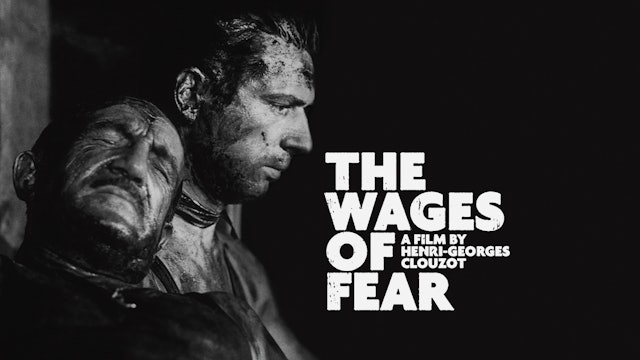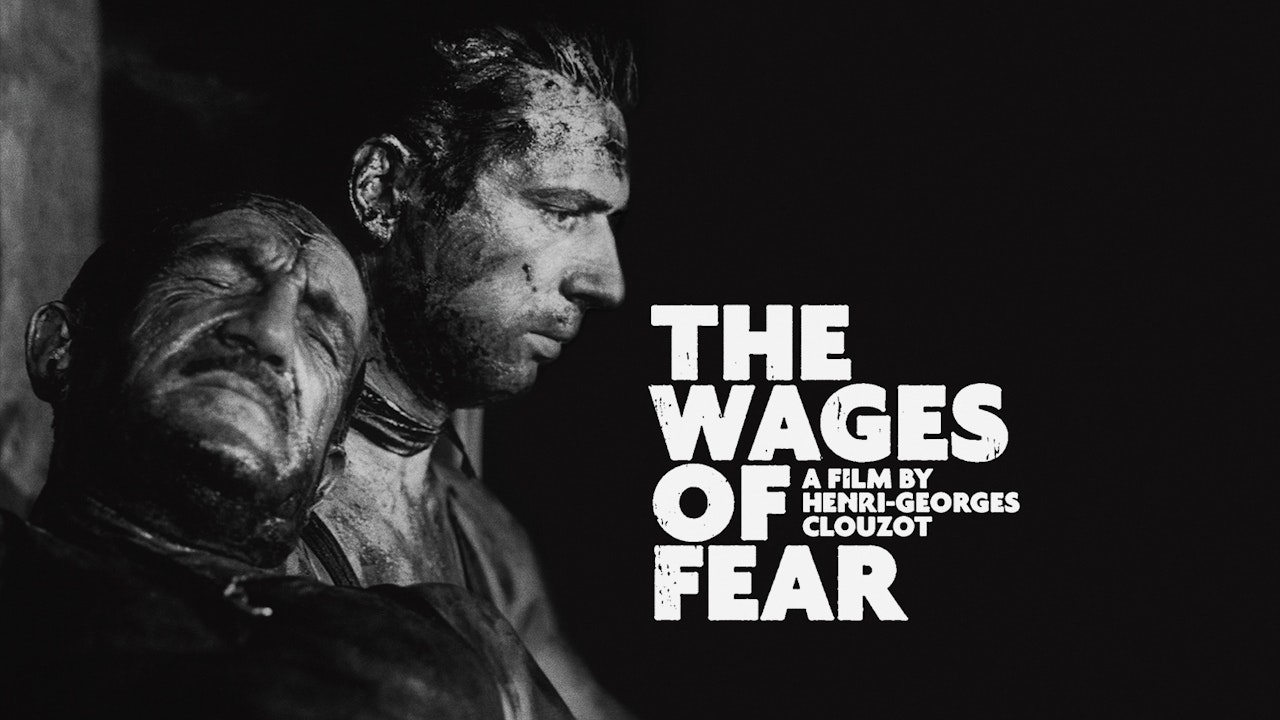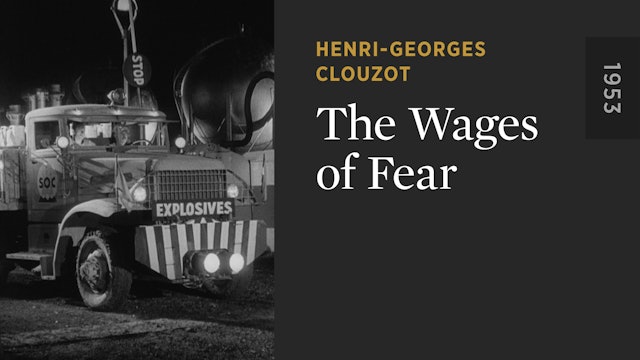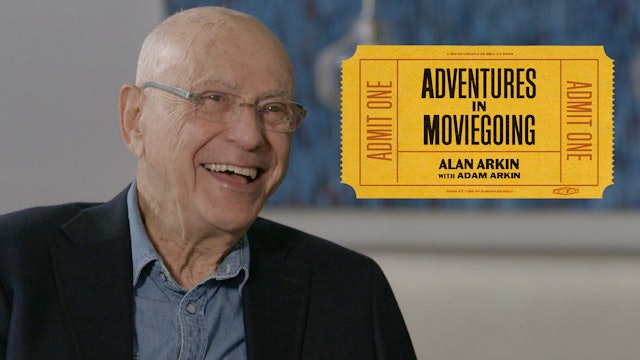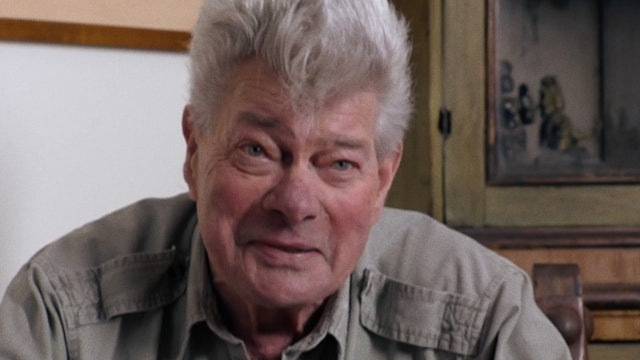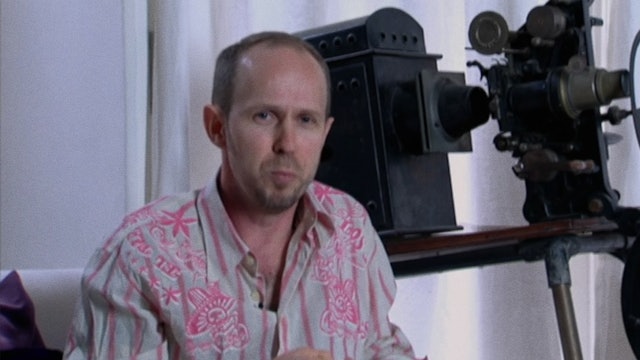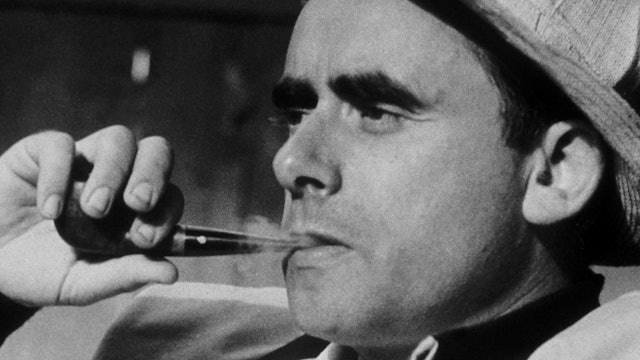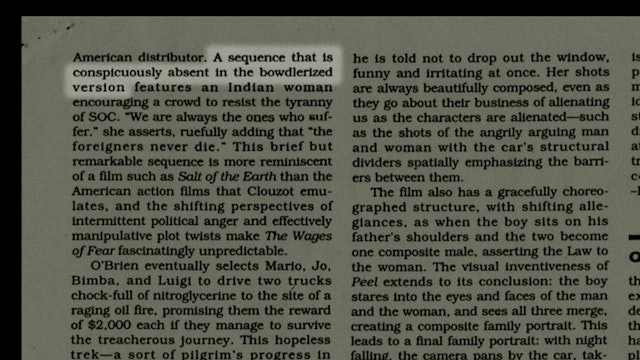The Wages of Fear
Directed by Henri-Georges Clouzot • 1953 • France
Starring Yves Montand, Charles Vanel, Peter Van Eyck
In a squalid South American oil town, four desperate men sign on for a suicide mission to drive trucks loaded with nitroglycerin over a treacherous mountain route. As they ferry their explosive cargo to a faraway oil fire, each bump and jolt tests their courage, their friendship, and their nerves. The result is one of the greatest thrillers ever committed to celluloid, a white-knuckle ride from France’s legendary master of suspense, Henri-Georges Clouzot.
-
The Wages of Fear
Directed by Henri-Georges Clouzot • 1953 • France
Starring Yves Montand, Charles Vanel, Peter Van EyckIn a squalid South American oil town, four desperate men sign on for a suicide mission to drive trucks loaded with nitroglycerin over a treacherous mountain route. As they ferry their explosive...
Extras
-
Alan Arkin on WAGES OF FEAR
-
Michel Romanoff on THE WAGES OF FEAR
Assistant director Michel Romanoff worked with directors such as Marcel Carné, Julien Duvivier, Jacques Demy, Agnès Varda, and Henri-Georges Clouzot, whose second he was on DIABOLIQUE, THE SPIES, and THE WAGES OF FEAR. In this 2005 interview in Paris, Romanoff discusses his work on the two-year s...
-
Marc Godin on THE WAGES OF FEAR
Marc Godin is the coauthor, with Henri-Georges Clouzot’s godson José-Louis Bocquet, of the illustrated biography “Clouzot: Cinéaste.” He was interviewed in Paris in 2005.
-
Henri-Georges Clouzot: The Enlightened Tyrant
This 2004 documentary gives an overview of director Henri-Georges Clouzot’s background and film career. It includes interviews with Clouzot’s second wife, Inès; his brother Marcel; actors Suzy Delair and Brigitte Bardot; and assistant director Michel Romanoff.
-
THE WAGES OF FEAR: Censored
When THE WAGES OF FEAR was first shown in the U.S. in 1955, it was in a much shorter form than the original. It is believed that the distributor cut perceived anti-Americanism and suggestions of homosexuality to appease U.S. sensibilities of the time. This 2004 program analyzes this censorship an...

